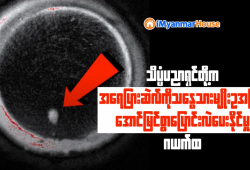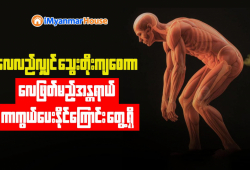
Foreign Property News | Posted by Hnin Ei Khin
Picture this: you’re in an important office meeting, presenting for a heavyweight potential client, and before you could finish it off in style, there comes a sudden sneeze!
Or picture this: on a first date with the boy you’ve had a crush on! He asks you for a dance, and before you could say ‘yes’, the sneeze comes in between!
2.jpg)
We’ve all been there – in a meeting, on a date, or crammed into public transport when a sneeze sneaks up. It’s as awkward as it is embarrassing! So, the first instinct when you can feel a sneeze coming?
Clamp your mouth shut, pinch your nose, and hold it in!
While it may save you from an embarrassing loud burst, doctors advise you to suck up to that awkwardness – for the sake of your health and safety.
Why? Because holding back a sneeze is a lot riskier than most people think.
Why do we sneeze?
Sneezing is your body’s built-in defense mechanism. Dust, pollen, smoke, perfume, or even a sudden burst of sunlight can irritate your nasal passages. In response, your brain sends a powerful signal to expel air, forcing irritants out of your system at lightning speed. Think of it as a sudden and powerful reflex!
Sneezes can travel at more than 100 miles per hour, ejecting thousands of tiny droplets.
In short: sneezing is nature’s way of cleaning house – a fast and efficient way to protect your lungs.
What happens when you hold it in?
Seems only normal that when you try to get in the way of a powerful reflex, something’s gotta get messed up.
When you stifle a sneeze, the enormous pressure that’s supposed to leave through your nose and mouth is redirected inward. Imagine slamming on the brakes of a race car going full speed – the force has to go somewhere.
In this case, it ricochets back into delicate areas like your sinuses, eardrums, and even blood vessels.
Burst eardrums: The ear, nose, and throat are all connected. And the ears are especially vulnerable. Trapping the force of a sneeze can push air and pressure up into your middle ear, occasionally leading to a ruptured eardrum. While rare, this can cause pain, hearing loss, and risk of infection.
Chest pressure: That tight, uncomfortable feeling in your chest after stifling a sneeze isn’t just in your head.
Popped blood vessels: The sudden spike in internal pressure can rupture small blood vessels in your eyes, nose, or eardrums. People sometimes notice red spots (called subconjunctival hemorrhages) in the white of their eyes after holding in a sneeze – a direct result of broken capillaries.
Throat damage: In extreme cases, doctors have reported injuries like ruptured throat tissue or damage to the sinuses after someone held in a particularly violent sneeze. While uncommon, the fact that it’s possible underscores just how powerful a sneeze really is.
Sinus problems: When you hold in a sneeze, irritants and germs stay trapped inside your nasal passages instead of being expelled. This can worsen sinus infections or increase nasal congestion. Ref: Holding in a sneeze? Here’s why you shouldn't









